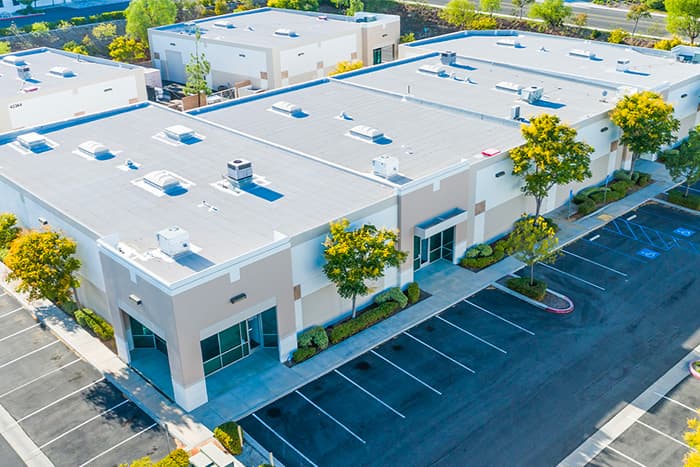
Buying vs. Selling Commercial Real Estate
Written on February 19th, 2024 | Updated on July 11th, 2025
In the world of commercial real estate, there exist two polar extremes for how to conduct your business: you can purchase property for whatever use you might have planned, or you can sell a property for the same reason. Both carry different processes, advantages, financial considerations, risks, benefits and legalities to consider.
Here are the main differences, similarities and benefits in the great game of buying vs. selling commercial real estate.
A Buyer’s Perspective
When a commercial real estate purchase is made, the reasons are usually drawn from the same pool of motivators. Investment might be the largest of the bunch; more often than not, a CRE purchase is made as a way to generate income for the purchaser. Buying property is also a strong way to expand a portfolio, receive tax benefits and protect yourself from inflation.
Purchasing real estate also comes with its fair share of challenges, including:
- Vetting the owner to ensure the reasons they’re selling the property are above board
- Unforeseen issues with the property
- Contending with local laws
- Fixes and upgrades being more expensive than initially thought
- Understanding tenant implications
A Seller’s Perspective
On the opposite end of the spectrum, selling brings its own list of benefits and motivators. The most obvious of these is the profit to be made from a sale, but the list also includes major tenant renewal dips that lower your income via rent payments, regrouping after the dissolution of an investment partnership, rebalancing a portfolio, and seeking higher depreciation with another property to reduce tax liability.
Some of the challenges of selling include:
- Unsuccessfully marketing your property to buyers
- Poor transaction management
- Lack of experience in negotiating terms
- Making sure you’ve made the right decision by selling
- Unforeseen property issues and property conditions
Key Differences Between Buying and Selling CRE
It’s time to dive into those details mentioned earlier and explore the true differences between buying and selling commercial real estate:
Financial Considerations
Money works and flows differently depending on whether you’re buying or selling your real estate. Buying means having the money to make the investment, or securing a loan to do so. Once you’ve locked in the specifics of how you’ll make your purchase, the purchase is made and, eventually, you recoup the investment through generation of income from your property.
When selling, the financial planning comes from determining the value of your property and how much you can reasonably expect to make from its sale. You’ll also have to consider any repairs you’ll need to perform before putting it on the market, and be sure to check the legalities involved to be certain you haven’t missed anything important.
Market Dynamics
Paying attention to market trends is important for both buyers and sellers. Whether you want to acquire a property or offload it, you’ll need to know what types of properties are trending the highest.
What properties are generating the most income? Is there a type of business that’s leading the pack in terms of success? If you’re buying, you’ll want to purchase a property that promises a return on your investment. If you’re selling, you’ll want to position your property as slotting into that trend, making it more appealing to buyers.
Legalities
No matter how you’re dealing with your CRE, you’ll need to be mindful of the legalities involved. One of the most important aspects of this is the set of legal rights each owner has to their property. These rights include the ability to use, produce and transfer the property, and both buyers and sellers benefit from this.
Zoning is another consideration: when buying a property, you’ll need to be certain your plans for the land are legal, and if you’re selling, it’s crucial to know exactly what a prospective buyer is planning to do with the property. If they break zoning laws, you could be held accountable for not being forthright with information on what the property can legally be used for.
Key Takeaways
In the end, buying and selling commercial real estate have their similarities, such as the importance of watching local laws, planning around market trends and understanding the investments needed for purchasing or repairing the property. However, there are just as many differences, including the building upgrades and consideration of investment potential needed for buying, and the marketing, transaction, legal and negotiation skills required by selling.
Ready to buy or sell your property? The expert commercial team at DRK will provide you with CRE brokerage services and help facilitate your journey.
Lean more about our CRE brokerage services here, and take a look at the properties available in the Columbus, Ohio, area right here.




